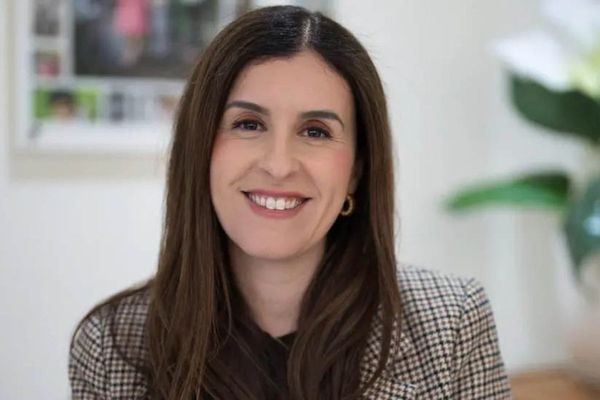
Karla Costello has seen the headlines.
More than 50,000 Queenslanders waiting on the social housing register. A Brisbane real estate agency urging landlords to increase rents by more than double the inflation rate. The state’s premier, Annastacia Palaszczuk, hosting a housing summit in a bid to solve a residential property shortage that shows no signs of abating.
Costello appreciates how fortunate she is to have a roof over her head. She also sleeps better at night knowing her Gold Coast investment property is no longer a transit lounge for holidaymakers.
“It was very difficult to watch our apartment sitting empty when we didn’t have guests,” she says of the two-bedroom property in beachside Miami that she rented via Airbnb for more than two years.
“I’m someone who makes decisions every day about how my actions as an individual affect the world and I’m not sure that was a great result for our local community. I even asked my partner if we could let the homeless man who lived on The Esplanade stay in it on the nights it wasn’t booked.”
Costello and her partner no longer need to have such discussions.
After returning their property to the long-term rental market, she has been spared the internal conflict she knows would have come from hearing the Queensland government this week announce it would launch an investigation into how the short-term letting market is affecting the state’s housing crisis.
It came after the Queensland Greens introduced a bill that would tax short-stay landlords an annual 5% levy on the value of their property. Meanwhile, Brisbane City Council has increased rates for short-term accommodation properties by 50%, asking residents to “dob in” neighbours suspected of advertising on platforms such as Airbnb and Stayz.
A lot of questions are being asked about short-term rentals of late but there is another that rarely gets raised in a society such as ours – is it ethical to rent out your property on Airbnb during a housing crisis?
The individual versus society
As executive director of The Ethics Centre, Dr Simon Longstaff is well qualified to look at the phenomenon of short-term rentals through an ethical lens.
While wary of taking the Guardian down a “philosophical rabbit hole”, he says one can’t reflect on the issue without looking to the theories of Adam Smith, the 18th century Scottish philosopher considered the father of capitalism for his belief in the pursuit of self-interest.
“So often when we have these conversations about the individual versus society, people tend to go back to Smith and say it’s about capitalism and self-interest without realising there were always qualifications to that story,” Longstaff says.
“Smith said the pursuit of self-interest was legitimate, not because it made one or two individuals better off but because it would ultimately lead to us all being better off.

“He also talked about the virtues of reciprocity and sympathy, which he thinks should underpin the way a society operates …
“When you look at the issue of affordable accommodation, you could say the market’s pursuit of self-interest isn’t delivering what it was supposed to.”
As a sociologist at the University of Tasmania, Prof Keith Jacobs has had a front-row seat to the Airbnb boom.
In the words of a report commissioned by Shelter Tasmania, Hobart has been “overloaded” with short-term rentals that now represent 5.65% of the residential rental market. Nearly half (47%) of those short-stay properties were previously occupied by long-term tenants.
But having spent more than 30 years researching housing policy, Prof Jacobs says the ethical question should be directed at governments and corporates rather than property owners.
“Individual choices matter, they are important, but they are not in themselves going to lead to any significant change,” he says.
“Individuals choosing not to Airbnb because of a housing shortage is all great but the big decision that needs to be made is governments disincentivising landlords from those practices.
“The issue of Airbnb is not the cause of the housing crisis. It’s a symptom, a manifestation of an underlying inequality and governments allowing wealthy Australians to commodify housing.”

Longstaff, however, says it’s reasonable that people consult their conscience when deciding whether “to Airbnb or not to Airbnb”.
“It’s difficult because the moment you start talking about removing a benefit people currently enjoy, you immediately trigger an adverse reaction,” Longstaff says. “At the point you’re starting to feel aggrieved, ask yourself ‘Do I have any obligation to my fellow citizens?’.
“What are the things you need to have a basic standard of living in a country like Australia? Shelter is certainly one of them.
“When you think about what you do with your property, you might think, ‘Am I depriving someone of a necessity to afford another person a luxury and is that a reasonable thing to do?’”
Question of ethics ‘not particularly helpful’
When Guardian Australia approached Airbnb for comment, the company directed us to a statement on its website in which it proposes “a series of measures that will help build stronger communities, foster sustainable tourism growth and equip governments across Australia with tools to help address important issues such as housing affordability and amenity”.
“Housing affordability is a challenging and complicated issue,” says Susan Wheeldon, Airbnb country manager for Australia.
“The causes differ from place to place, with legacy factors – which often pre-date the founding of Airbnb by decades.
“We’re also seeing the effects of increasing housing pressures on our platform, with more people turning to hosting as a way to battle rising costs of living and growing mortgage repayments.”
Eacham Curry, a senior director at Expedia Group, which owns Stayz, says questioning the ethics of short-term rental homeowners is “not particularly helpful”.
“Saying something is unethical mischaracterises the situation,” he says. “I could equally [raise] the economic benefit we know short-term letting brings to Australia and the money it brings into local communities, particularly where there aren’t traditional hotels but are otherwise tourism hotspots.
“The homes we list tend to be at a higher price point and in locations where even if they were turned over to long-term letting, they would not end up being part of the affordable housing mix.”
A question not just for landlords
Fiona Caniglia has no doubt the short-term rental market is having a negative impact on housing supply.
“When [Airbnb] started to emerge, I remember thinking these are huge incentives for people to take their homes out of the long-term private rental market,” says the executive director of Q Shelter.
“It’s generally a huge disruption to how the housing market was meant to function, which was to help people have a home.”
And what of the ethical question? It might not just be one for landlords but for short-stay holidaymakers too.
“For these markets to exist, it’s because there is a demand for this type of product,” Caniglia says. “It is time for the whole community to think quite deeply about our values as a society and the things we put first …
“Like any ethical way we spend our money to help someone else, it’s wonderful when people can think about that thoughtfully and within an ethical framework.”
Longstaff adds: “I think a lot of people look at this conversation and say ‘You’re depriving me of an opportunity to prosper – I’ve put my money in, taken risk and want to get the maximum return on my investment’.
“But asking the ethical question doesn’t necessarily mean they have to wear a hair shirt and be a lot worse off … the return on investment [on long-term rentals] is still a reasonable one.”
Back on the Gold Coast, Costello stresses that ethics alone did not inspire her decision to swap Airbnb guests for permanent tenants. There were other factors at play – one of which, in hindsight, epitomises why she would not feel comfortable jumping back into the short-term rental market.
“We were initially the only Airbnb in our apartment block and one of only a handful in our area but now the market is flooded with them,” she says. “There is no guarantee you’re going to make significant returns on Airbnb and when you weigh that up against contributing to the housing crisis, I’m not sure it’s morally worth it.”







